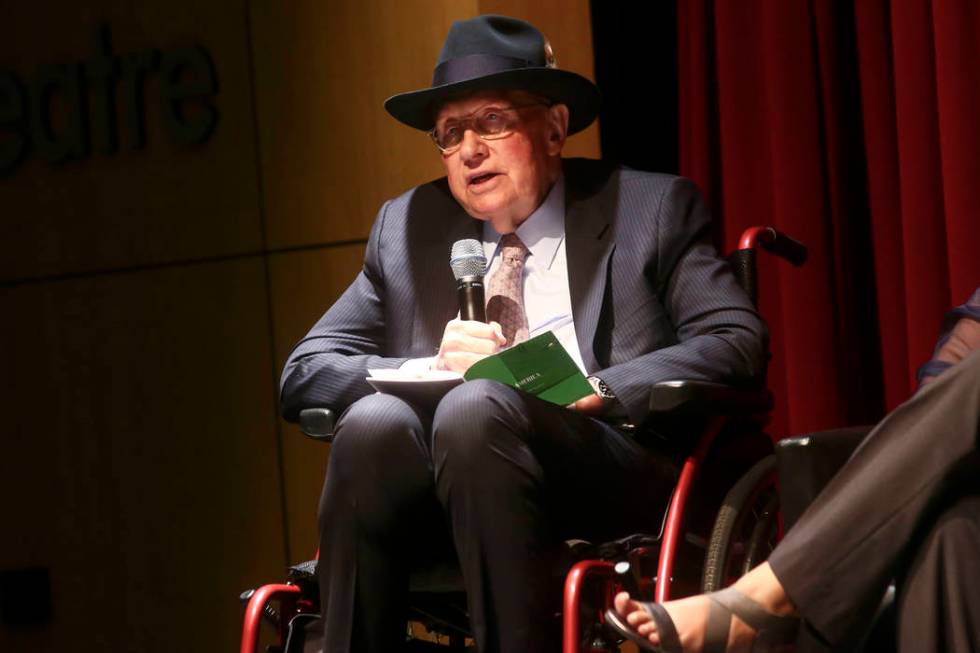Harry Reid, UNLV host discussion on Islam in America

Muslim scholars, lawyers and students gathered at UNLV on Thursday for a public discussion on the common hardships and misconceptions faced by American Islamic communities, as well as their history in the United States.
The event, hosted by former Senate Majority Leader Harry Reid in conjunction with UNLV’s Boyd Law School, was meant to deepen the understanding of American Muslims, whom Reid noted make up about 1 percent of the country. It was moderated by National Public Radio national correspondent Leila Fadel.
Farid Senzai, assistant professor of political science at Santa Clara University, shared some of his research and other key findings in regards to history and demographics. He said Muslims are unfairly stigmatized as “foreign” but have in fact been in the U.S. since before its founding. Between 20 and 40 percent of African slaves brought to America were Muslim, he said, and Muslims fought for the colonies during the American Revolution.
Many on the majority-Muslim panel talked about Islam being incorrectly thought of, stereotyped and even profiled in racial terms. It is a religion practiced by many races. Senzai noted that 41 percent of U.S. Muslims are white, and 20 percent are black. Only 14 percent of Muslim immigrants are from the Middle East, he said.
Sahar Aziz, a professor at Rutgers University Law School, said her career path was altered by the 9/11 attacks during her first year of law school. Aziz, who is Egyptian-American, said she went from being an “invisible, racially ambiguous” person to a targeted racial minority overnight.
Aziz said that up until about 2007, there was a racial backlash that many Muslims believed would subside as the wounds from the attacks began to heal. However, the racist targeting of Muslims began to normalize and has even risen to the level of large groups of people, including the current presidential administration, believing that Muslims are seeking to take over the country, she said.
Michael Kagan, a law professor at UNLV and director of its immigration clinic, said years spent living in the Middle East taught him that every community has its beauty and its problems, but some Americans judge all Muslims by the biggest problem faced by a particular Muslim community: terrorism. He said there is a level of hateful speech against Muslims deemed socially acceptable in ways that hate speech against other groups is not.
Mahir Hussein, president of the UNLV Muslim Student Association, said he feels many of the misconceptions some of his classmates have about Muslims come from ignorance. He briefly explained the tenets of the Muslim faith to the audience.
Farhana Khera, founder of Muslim Advocates, said she moved from civil rights law into politics and finally into advocacy during the aftermath of the 9/11 attacks.
She said many prominent political figures, including President Donald Trump, have targeted Muslims and spread fear through ban and registry proposals. She noted that hate crimes against Muslims are at an all-time high — even higher than in the immediate aftermath of 9/11.
Contact Rory Appleton at rappleton@reviewjournal.com or 702-383-0276. Follow @RoryDoesPhonics on Twitter.